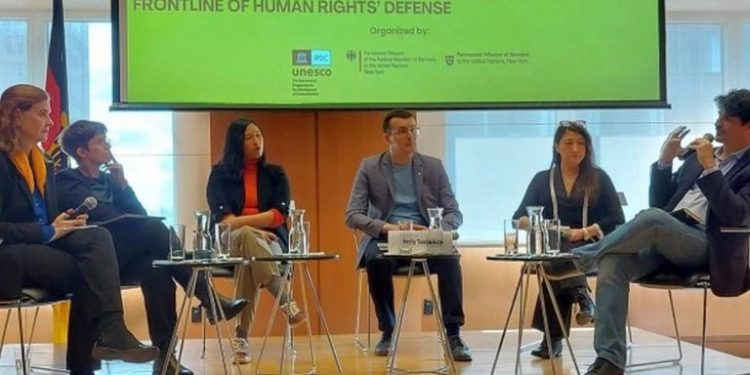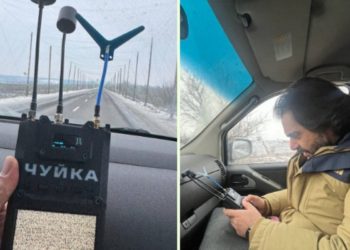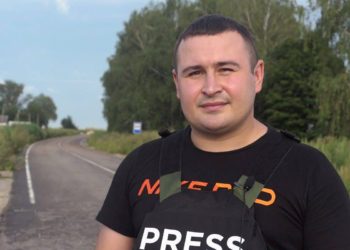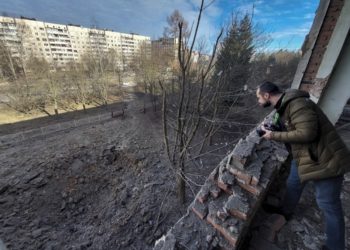On 3 May, as UNESCO marked the 30th anniversary of World Press Freedom Day, some 60 journalists, UN delegates, donors and media development experts gathered to discuss the challenges faced by displaced and exiled journalists, and how best to respond to them.
This follows from the UNESCO website.
The information posted on the UNESCO website also says:
Organized by UNESCO’s International Programme for the Development of Communication (IPDC), the Permanent Mission of the Federal Republic of Germany to the UN, and the Permanent Mission of Sweden to the UN, the session, “Journalism on the move: Displaced media workers on the frontline of human rights’ defense,” shone the spotlight on the threats facing journalists in such situations from those who know them best. Three journalists working in shifting and dangerous environments, together with experts in the field, addressed on-the-ground challenges, innovative responses, and what governments and intergovernmental bodies can do to better protect media workers on the frontlines. The panel was moderated by Anne Nelson, researcher and former director of the Committee to Protect Journalists.
“After the 2021 coup, journalists having to flee Myanmar and continue their work in exile was almost a return to the norm,” said Khin Wai, Director of the Exile Hub and MiCT Fellowship for Critical Voices in Myanmar. But the everyday situation for independent journalists and critical voices now seeking refuge is anything but normal.
Many face multiple arrest warrants and legal and logistical hurdles such as entry permits, work visas, and language barriers. Often, she said, the cost of relocation can be two to three times a journalist’s salary, and even more for those relocating with family. Yet, family members and property left behind face direct threats from the military and government authorities, who seek to deter reporting even from those journalists that have fled the country.
Her intervention was accompanied by an exhibit of the photo series “Retrieving the Dead,” by Mauk Kham Wah, MiCT Critical Voices Fellow and winner of the Southeast Asia and Oceania Section of the World Press Photo Award 2023.
In Ukraine, journalists have found themselves on the frontlines of war and occupation for the past year, and many are now displaced within the country. Sergiy Tomilenko, president of the National Union of Journalists of Ukraine (NUJU), detailed the massive influx of journalists’ requests for assistance as conflict escalated – requests that far outpaced NUJU’s capacities and resources at the time.
With support from UNESCO and the International Federation of Journalists, NUJU has now established a network of six “solidarity centers” to meet journalists’ most urgent needs. Following the initial steps of providing safe houses and guidelines for evacuation, the centers are now being used as newsrooms for displaced journalists, who there can access training opportunities, financial and legal assistance, and psychological support. IPDC support will enable a similar initiative for safe spaces in Pakistan – for Afghan journalists – and in Latin America.
Threats to journalists also reach beyond active conflict zones, as was emphasized by the experience of Jose Luis Sanz and the Salvadoran digital news outlet El Faro. There, investigations and threats targeting journalists, including accusations of money laundering, have pushed journalists to temporarily flee the country numerous times over the past year. In April 2023, El Faro decided to relocate its financial and legal structure to Costa Rica, even as the majority of its staff remained in El Salvador.
“Attacking journalists is part of a broader strategy to weaken democracy – it is not a reaction. It is part of a strategy to weaken one of the key pillars of democracy,” Jose Luis Sanz
Each of the three experiences presented – from Myanmar to Ukraine to El Salvador – highlighted unique needs and challenges. Yet, as reporter Celeste Katz Marston outlined in her article “Forced to flee: How exiled journalists hold the powerful to account” and recounted in the panel, numerous commonalities exist among exiled and displaced journalists worldwide. They worry about the safety of their friends and families back home, who often come under threat, while simultaneously trying to maintain contact with their sources. Verification of information from the ground becomes that much more difficult for those who have left, and outlets must find innovative ways to access both financial support and their audiences.
And, significantly, “journalists don’t want to talk about themselves,” Katz Marston remarked. “They don’t want to be the story, so they tend to downplay their own problems.” It is a similar mentality that makes stress and trauma so difficult to address, as Tomilenko emphasized, even when psychological support is available. But for most journalists in these environments, Tomilenko added, “it’s not business, it’s a mission” to provide potentially lifesaving information to even the most vulnerable and hard-to-reach communities.
Taking action
Recognizing the many and varied threats facing them, strengthening the safety of journalists remains fundamental to all support to free, pluralistic, and independent media. As IPDC Chair Ambassador Anna Brandt stated in her opening remarks, “We have to continue to protect journalists, the oxygen of our society, their human rights and fundamental freedoms, especially those who are displaced and exiled.”
In each case, the speakers outlined current support networks and coping mechanisms alongside the long list of challenges: creating support hubs for journalists fleeing Myanmar and those displaced within Ukraine, relocating institutional structures to better shield outlets from legal threats and therefore ensure the newsrooms’ ability to continue to pay their journalists, and more.
Anna Lührmann, Minister of State for Europe and Climate of the Federal Republic of Germany, emphasized that governments have a responsibility to assist in meeting these urgent needs, through initiatives such as the Hannah Arendt Initiative supported by Germany. She also underlined the need for increasing policy efforts to, for instance, ease visa requirements and promote journalist safety.
Moderator Anne Nelson deftly summarized: as the attacks on journalists continue to be agile, so too must be our response to those attacks.

 THE NATIONAL UNION OF
JOURNALISTS OF UKRAINE
THE NATIONAL UNION OF
JOURNALISTS OF UKRAINE
















Discussion about this post